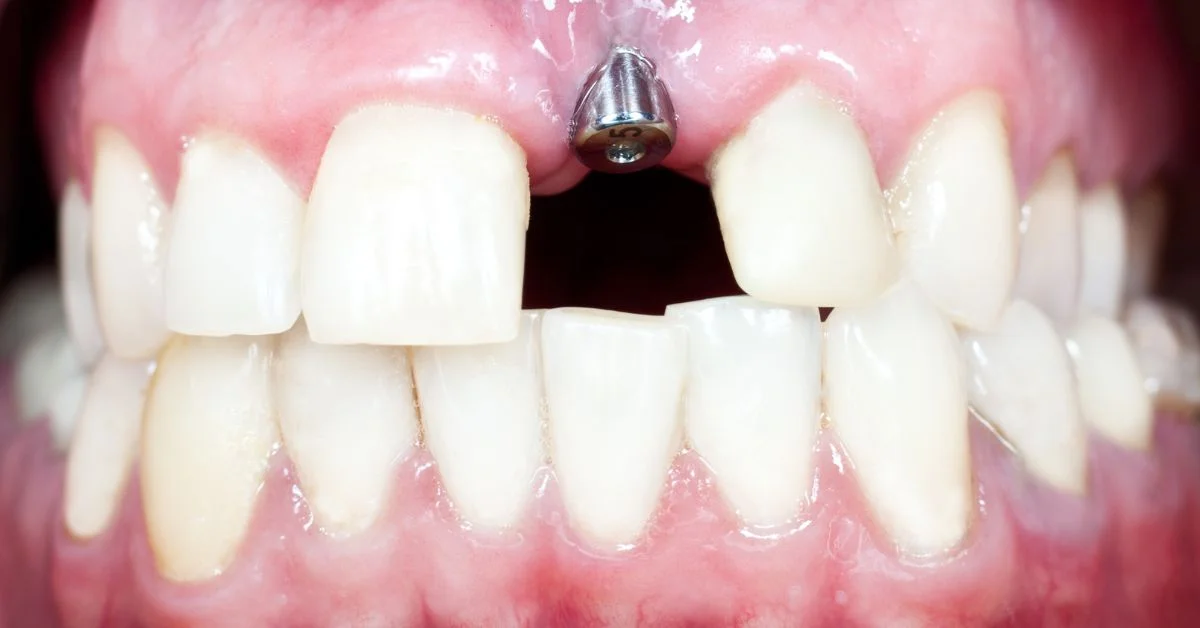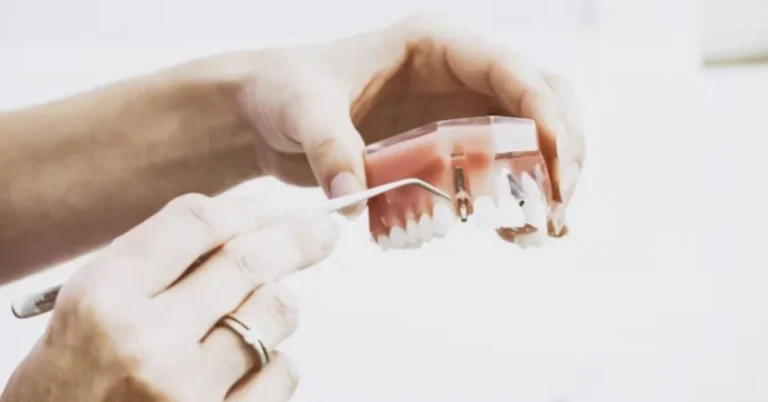
Tooth loss is more common than many people think, and it can happen for a variety of reasons—severe decay, gum disease, injury, or other health conditions. While modern dentistry offers several tooth replacement options, dental implants are considered one of the most effective and long-lasting solutions. They not only restore your ability to chew and speak properly but also preserve your jawbone health and facial structure.
However, many people delay getting implants because they’re unsure if they truly need them or believe they can manage with missing teeth. This often leads to more serious dental issues down the road. Understanding the signs that indicate you may need dental implants can help you take timely action and protect your overall oral health.
In this in-depth article, we’ll explore eight key signs that dental implants might be the best option for you. Each sign will be explained in detail, along with the reasons behind it, the possible consequences of ignoring it, and how implants can help.
1. You Have One or More Missing Teeth
The most obvious sign that you may need dental implants is the presence of missing teeth. Whether the gap was caused by decay, gum disease, injury, or extraction, the absence of teeth affects both your oral function and appearance.
When a tooth is lost, the surrounding teeth may begin to shift into the empty space, causing misalignment and bite problems. Over time, the jawbone in that area can begin to deteriorate due to lack of stimulation. Dental implants act as artificial tooth roots, preserving bone density and keeping your smile stable.
If you have one missing tooth, a single dental implant can restore it without affecting neighboring teeth. If you have multiple missing teeth, implant-supported bridges or dentures may be recommended.
2. You Have Severely Damaged or Decayed Teeth Beyond Repair
Not all damaged teeth can be saved with fillings, crowns, or root canals. In some cases, the tooth structure may be too compromised to provide long-term stability. This often occurs when decay has reached deep into the root or when a tooth has fractured extensively.
Leaving a severely damaged tooth in your mouth can lead to ongoing pain, infection, and even abscess formation. Extracting the tooth and replacing it with a dental implant prevents further health issues and restores normal function.
Unlike removable dentures or traditional bridges, implants do not rely on adjacent teeth for support, meaning your healthy teeth remain untouched. This makes them an excellent solution for replacing non-restorable teeth while preserving the integrity of your smile.
3. You Have Loose or Poor-Fitting Dentures
Traditional dentures, while a common solution for tooth loss, can sometimes cause more frustration than relief. If you find yourself constantly adjusting your dentures, avoiding certain foods, or feeling embarrassed about them slipping while you talk, dental implants can be life-changing.
Implant-supported dentures are securely anchored to the jawbone, eliminating the need for messy adhesives and preventing movement. This stability allows you to eat a wider variety of foods and speak confidently. Additionally, because implants stimulate the jawbone, they help prevent the bone loss that often causes dentures to loosen over time.
If your current dentures are causing irritation, sores, or repeated adjustments, it’s worth discussing implant-supported options with your dentist.
4. You Have Difficulty Chewing or Speaking Clearly
Missing teeth or unstable dental restorations can significantly affect your ability to chew and speak. When chewing becomes challenging, you might start avoiding certain nutritious foods like fruits, vegetables, and proteins, leading to potential nutritional deficiencies.
Similarly, missing teeth—especially in the front—can alter your speech, making it harder to pronounce certain words. Over time, this can affect confidence and social interactions.
Dental implants function like natural teeth, restoring full biting force and allowing you to speak without worrying about slippage or discomfort. By improving both function and confidence, implants can dramatically enhance your quality of life.
5. You Have Jawbone Loss or Are at Risk of It
One of the lesser-known consequences of tooth loss is jawbone deterioration. The roots of your teeth provide constant stimulation to the jawbone when you chew, keeping it healthy and dense. When a tooth is lost, that stimulation stops, and the bone in that area begins to resorb (shrink).
Over time, jawbone loss can change your facial appearance, making your face look sunken or aged. It can also make it more difficult to fit dentures or other restorations. Dental implants prevent this by integrating with the jawbone through a process called osseointegration, which provides the stimulation necessary to maintain bone health.
If you’ve already experienced bone loss, certain implant techniques—such as bone grafting—can help restore the foundation needed for successful implant placement.
6. You Have a Sunken or Prematurely Aged Facial Appearance
Facial aesthetics are directly connected to the health of your teeth and jawbone. When multiple teeth are missing, and bone loss occurs, the skin around your mouth can sag, leading to wrinkles and an aged appearance.
This change in facial structure is especially noticeable in long-term denture wearers who have lost significant bone mass. Dental implants can restore facial support by preserving the jawbone and filling out the natural contours of the face.
By preventing or reversing this sunken look, implants not only improve function but also enhance overall appearance, helping you look healthier and more youthful.
7. You Have Chronic Dental Infections or Gum Disease
Repeated dental infections, abscesses, or advanced gum disease (periodontitis) are warning signs that your oral health is under serious threat. If left untreated, these conditions can cause tooth loss and even affect your general health, as bacteria from the mouth can enter the bloodstream and impact the heart or other organs.
When a tooth is severely affected by infection and cannot be saved, extraction followed by a dental implant can help restore oral health and prevent the spread of bacteria.
However, it’s important to note that active gum disease must be treated before implant placement. Healthy gums and adequate bone support are essential for implant success.
8. You Want a Permanent, Low-Maintenance Tooth Replacement
If you’re seeking a tooth replacement option that is both permanent and easy to maintain, dental implants are unmatched. While bridges and dentures need periodic replacement or adjustment, implants can last decades—or even a lifetime—with proper care.
Implants are also cleaned just like natural teeth, requiring no special adhesives or soaking solutions. This makes them a convenient choice for people who want a natural-looking, stable, and durable restoration that blends seamlessly with their smile.
If you’re tired of dealing with the limitations of removable prosthetics or temporary fixes, dental implants offer a long-term solution that feels and functions like your own teeth.
The Importance of Acting Early
One of the most important points to remember is that delaying treatment can make the implant process more complicated. As jawbone loss progresses, more extensive procedures—such as bone grafting or sinus lifts—may be required before implants can be placed. Acting early not only makes the procedure simpler but also protects your remaining teeth and bone structure.
Conclusion
Dental implants are more than just cosmetic solutions—they are essential tools for restoring oral health, function, and confidence. Whether you have missing teeth, loose dentures, chewing difficulties, or jawbone loss, recognizing the signs early can help you take action before problems worsen.
By consulting with a qualified implant dentist and addressing the issue promptly, you can enjoy a permanent, natural-looking smile and maintain your oral health for years to come.
5 FAQs About Needing Dental Implants
1. How long do dental implants last?
With proper care, dental implants can last 20 years or more, and many last a lifetime.
2. Is everyone a candidate for dental implants?
Most healthy adults can get implants, but adequate bone density and healthy gums are necessary for success.
3. Are dental implants painful to get?
The procedure is done under anesthesia, so discomfort is minimal. Mild soreness afterward is normal and temporary.
4. Can dental implants replace multiple missing teeth?
Yes, implants can support bridges or dentures to replace several or all missing teeth in a jaw.
5. How do I maintain my dental implants?
Brush and floss daily, get regular dental checkups, and avoid habits like smoking that can affect implant health.
For more information, click here.







